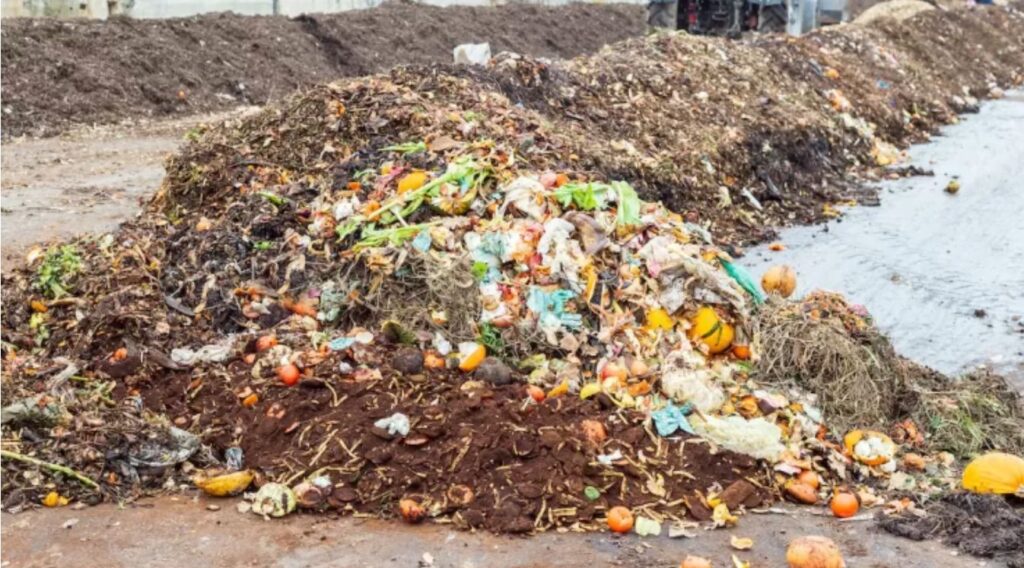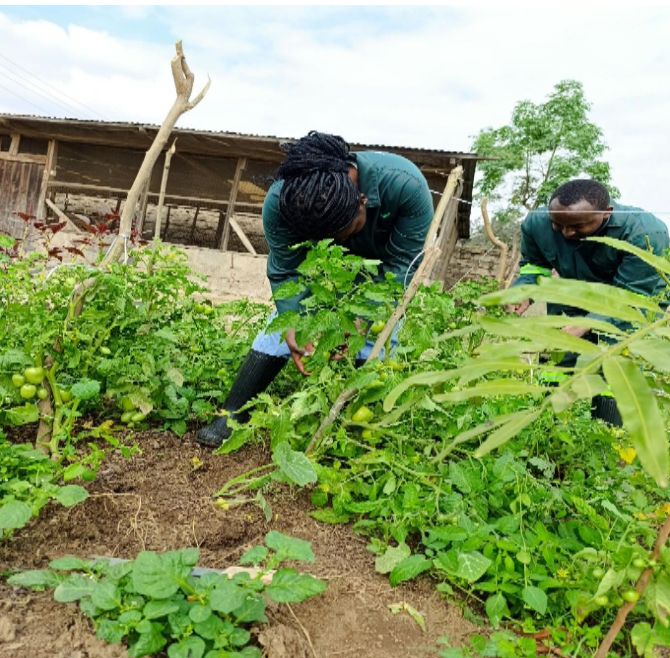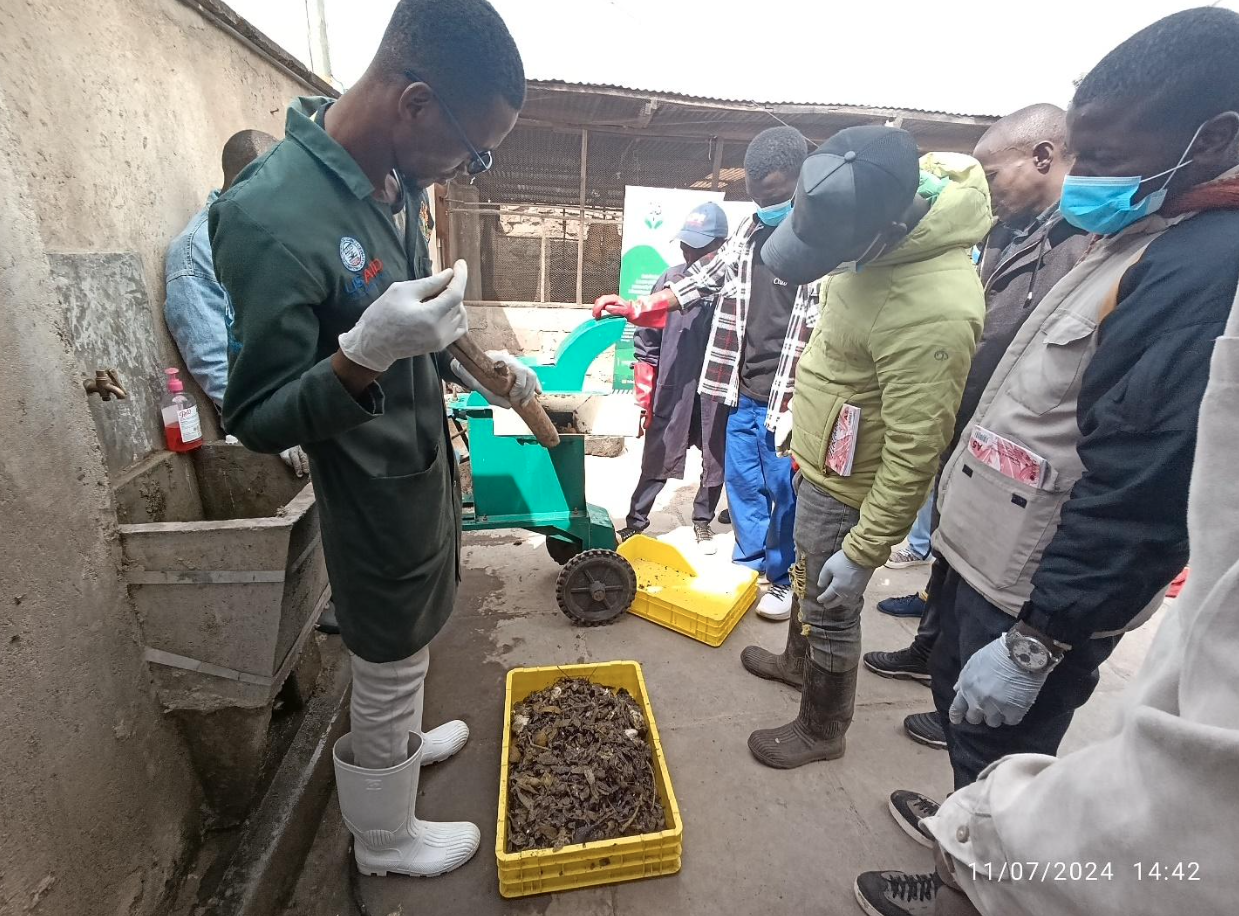Amid the worsening impacts of climate change, pollution continues to play a significant role in environmental degradation. Did you know that food waste accounts for one-third of human-caused greenhouse gas emissions, contributing approximately 8% of annual global emissions?
Despite these alarming statistics, Safe Environment Hub Kenya (SEHub) has developed an innovative solution. Their project, Black Soldier Fly Farming: Trash to Cash, addresses challenges such as inefficient waste disposal, the financial struggles of waste pickers, and the demand for organically grown food.
Led by George Udah Onyango, a passionate environmentalist, educator, and founder of SEHub, the initiative involves a team of 16 members who transform organic waste into valuable products. Waste is collected from homes and the Ruai market by contracted pickers, who sort it to remove inorganic materials before transporting it to SEHub’s processing site.

Image of organic waste in a landfill: Adobe Stock
At the site, the waste is weighed, recorded, crushed, and fermented for optimal use. It is then fed to black soldier fly larvae, which convert the waste into protein-rich content through a bioconversion process. The larvae, harvested at the fourth instar, are dried and packaged as animal feed or used wet to nourish poultry. During their growth, the larvae excrete frass—an organic manure that is sieved and packaged for agricultural use.
In just five months, the project has processed over six tons of waste, producing 243 kilograms of protein-rich larvae and 450 kilograms of frass. Testing in SEHub’s kitchen garden has yielded over 70 kilograms of tomatoes and 40 kilograms of other vegetables. Additionally, SEHub has trained 72 individuals in the black soldier fly value chain, promoting climate adaptation and pollution mitigation.

A kitchen garden at the site where testing of the organic fertilizer takes place
This initiative exemplifies the circular economy by transforming waste into resources while addressing climate change and empowering communities. The project has received recognition from government bodies, local institutions, and international organizations such as ChildFund.
Climate change is a personal issue for everyone. By embracing innovative projects like this, we can educate communities and mitigate environmental impacts. Together, we can make a significant difference.

